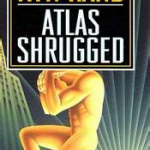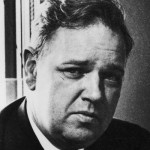
Deprecated: trim(): Passing null to parameter #1 ($string) of type string is deprecated in /home/aoiusa/public_html/wp-content/plugins/sexybookmarks/public.php on line 388
Deprecated: trim(): Passing null to parameter #1 ($string) of type string is deprecated in /home/aoiusa/public_html/wp-content/plugins/sexybookmarks/public.php on line 394
Deprecated: trim(): Passing null to parameter #1 ($string) of type string is deprecated in /home/aoiusa/public_html/wp-content/plugins/sexybookmarks/public.php on line 400
 I received permission to reprint this blog post by Acton Institute blogger Bruce Edward Walker. Walker, correctly in my view, draws out the authoritarian impulse in Rand’s philosophy of “Objectivism” that can be distilled down to this: The libertarianism (man’s moral agency is self-referencing) that describes Rand’s Objectivism stands against the classical liberalism (what we today would call moral conservatism) of a Burke, Kirk, or even Tocqueville which see the bonds between people and thus society and culture as fundamentally religious in character.
I received permission to reprint this blog post by Acton Institute blogger Bruce Edward Walker. Walker, correctly in my view, draws out the authoritarian impulse in Rand’s philosophy of “Objectivism” that can be distilled down to this: The libertarianism (man’s moral agency is self-referencing) that describes Rand’s Objectivism stands against the classical liberalism (what we today would call moral conservatism) of a Burke, Kirk, or even Tocqueville which see the bonds between people and thus society and culture as fundamentally religious in character.
Whittaker Chambers: Big Sister is Watching You
William Buckley on Ayn Rand & Atlas Shrugged:

Source: Acton Institute | Bruce Edward Walker
Atlas Shrugged – See the Movie, Skip the Book
Is it conceivable to endorse the cinematic adaptation of Ayn Rand’s libertarian manifesto Atlas Shrugged – as I do – while rejecting the flawed ideology which inspired it?
I would argue, yes. On the one hand, I place the Beatles at the pinnacle of 1960s pop music while concluding that their song “Mr. Moonlight” is wince-inducing to the point of being unlistenable. Likewise, I admire 99.9 percent of G.K. Chesterton’s body of work yet disagree with him on his assertion only men should vote. On the other hand, I disagree for the most part with Camille Paglia’s worldview yet admire her writing style and intellectual honesty.
So it goes with Ayn Rand. Her free-market views were a welcome antidote to New Deal policies and the malignant growth of government programs and crony capitalism. And for the same reasons I warmly welcome the first installment of the planned cinematic trilogy of Rand’s Atlas Shrugged – timed to coincide with the traditional Tax Day this coming Friday – which renders her themes in such a fashion they appear ripped from the headlines of today’s Wall Street Journal.
Atlas Shrugged-Part I captures the malaise of our times in its depiction of a United States of the near future when businessmen look to government to throttle competition by any means necessary (e.g. legislation and regulation) rather than innovating and investing to succeed. Part I ignores Rand’s anti-collectivism, rampant individualism, atheism and, for the most part, libertarian libertinism, to focus on her depictions of government looters and corporate rent seekers.
All this recommends the movie to lovers of liberty properly understood, to borrow a phrase from Russell Kirk. In fact, I’ll go so far as to encourage readers to see the film and skip the book.
My problems with Rand and Objectivism, the ideology of “enlightened self-interest” she founded, go beyond the oft-quoted admonition of Whittaker Chambers in which he expressed her autocratic intransigence led him to read Rand’s command to all detractors real and perceived “to the gas chambers go!” on every page. There is some truth to Chamber’s critique, to be sure, in that any worldview that rejects faith and community eventually succumbs to obduracy leading to what Russell Kirk labeled the “chirping sect” of libertarianism (a phrase he borrowed from T.S. Eliot).
By chirping sect, Kirk intentionally references Edmund Burke’s “insects of the hour” — those libertarians who splinter into ever smaller groups and thereby sacrifice both the personal and common good on the altar of their own narcissism masked as “individualism.” One need only read about the internecine strife within the Objectivist’s ivory tower to note the wisdom of Burke and Kirk. The CliffsNotes version: Arguing with Rand meant immediate exile to intellectual Siberia.
Contrary to Rand’s individualism, the United States since its beginning has congregated in townships and parishes where true democracy flourishes under the express influence of religious faith. Nineteenth-century writers Alexis de Tocqueville and Orestes Brownson both noted these communal incubators and conservators of liberty – small collectives that reflect their respective faiths to advocate for the good of all within their sphere.
As Tocqueville wrote in his seminal Democracy in America:
In the United States the influence of religion is not confined to the manners, but it extends to the intelligence of the people. Amongst the Anglo-Americans, there are some who profess the doctrines of Christianity from a sincere belief in them, and others who do the same because they are afraid to be suspected of unbelief. Christianity, therefore, reigns without any obstacle, by universal consent; the consequence is, as I have before observed, that every principle of the moral world is fixed and determinate, although the political world is abandoned to the debates and the experiments of men. Thus the human mind is never left to wander across a boundless field; and, whatever may be its pretensions, it is checked from time to time by barriers which it cannot surmount. Before it can perpetrate innovation, certain primal and immutable principles are laid down, and the boldest conceptions of human device are subjected to certain forms which retard and stop their completion.
Among his many salient points against libertarianism enumerated in the essay, “Libertarians: the Chirping Sectaries,” Kirk said:
What binds society together? The libertarians reply that the cement of society (so far as they will endure any binding at all) is self-interest, closely joined to the nexus of cash payment. But the conservatives declare that society is a community of souls, joining the dead, the living, and those yet unborn; and that it coheres through what Aristotle called friendship and Christians call love of neighbor.
Elsewhere in his essay, Kirk delineates the differences between individualism as expressed by Rand and her like and the community spirit so intrinsic to our national character by invoking Eric Voegelin, whom, Kirk states:
[R]eminds us – is not between totalitarians on the one hand and liberals (or libertarians) on the other; rather, it lies between all those who believe in some sort of transcendent moral order, on one side, and on the other side all those who take this ephemeral existence of ours for the be-all and end-all-to be devoted chiefly to producing and consuming. In this discrimination between the sheep and the goats, the libertarians must be classified with the goats – that is, as utilitarians admitting no transcendent sanctions for conduct. In effect, they are converts to Marx’s dialectical materialism; so conservatives draw back from them on the first principle of all.
In short, capitalism and the toxic individualism of Rand and others for the instantaneous benefits supposedly granted leads to liberty misunderstood in the forms of materialism and licentious behavior – both antithetical to liberty properly understood as the fully realized temporal life in community and faith.
So I’m thankful Atlas Shrugged-Part I avoids the toxic elements of Rand’s so-called “philosophy” and am hopeful the subsequent installments of the film trilogy steer clear of the same pitfalls. By all means, see the film and avoid the book.

